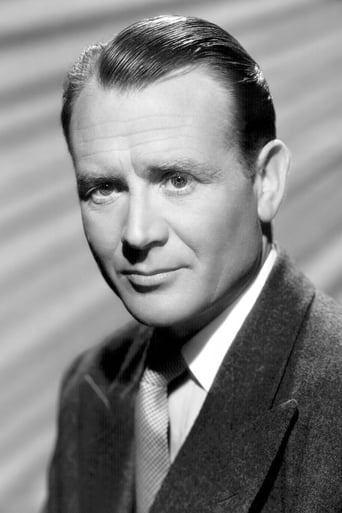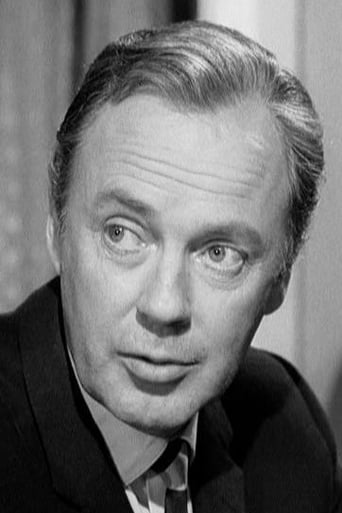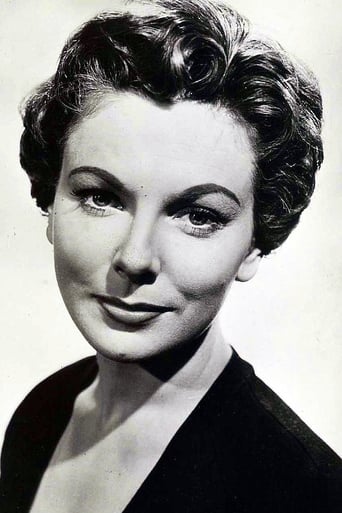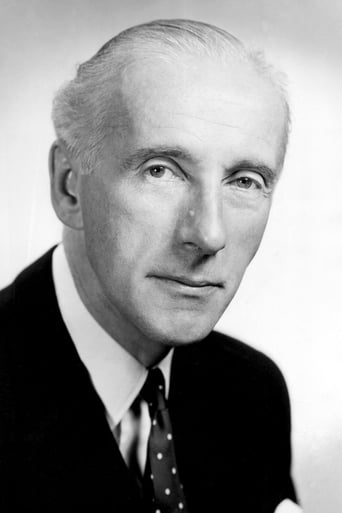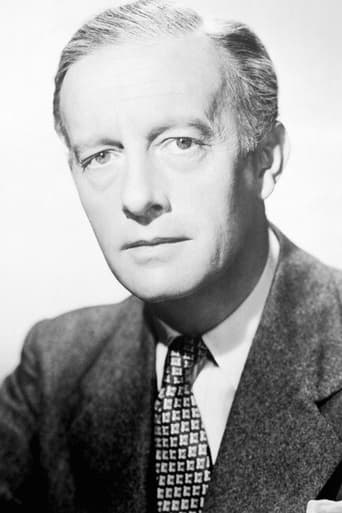ScoobyWell
Great visuals, story delivers no surprises
ScoobyMint
Disappointment for a huge fan!
Lightdeossk
Captivating movie !
Tyreece Hulme
One of the best movies of the year! Incredible from the beginning to the end.
lucyrfisher
The plot makes no sense at all - just enjoy the acting from John Mills, Derek Farr and others. And the various flats and offices. Derek Farr is a bit of a playboy, and has a modernist flat with a trellis from which to hang flowerpots, modernistic sculpture and tribal art. John Mills's flat has an entrance in a mews, but is huge (mews cottages, converted from stables, are tiny). It also has a view of a Hawksmoor church, instead of the opposite side of the mews. Since his flat is being watched by baddies and the police, he's lucky there is another entrance up a fire escape and through a glass skylight. By the way, although the cast are admittedly middle-class, none of them live in the "suburbs", but in the centre of London, and it's always lovely to see glimpses of the city as it was.More goofs: Lionel Jeffries turns up at John Mills's consulting room pretending to be a journalist. He asks a lot of questions, but has nothing to write the answers on and takes no notes. John Mills then gets the mysterious phone call from "Charles" to pick up a German actress from a very classy London airport. He is told a lot of information: times, places, addresses, but again takes no notes - he is holding the phone in his right hand, and is right handed.When he and Lionel get to the airport, he has the actress paged, but then Lionel waves and says the actress has turned up and is in the car. John joins them, without telling the airport girl to stop paging Frieda.There's a nervous looking woman called Mrs Amber or Ambler who tells a story of finding a corpse with its head bashed in by a brass candlestick on Hampstead Heath which then disappears. Bits of the candlestick keep turning up, and Mrs Ambler keeps changing her story. I have no idea what this has to do with anything.The police sport enigmatic smiles and seem to know a lot they aren't telling John Mills. I love Francis Durbridge - how did he get away with it for so long? Perhaps it was the sophisticated ambiance - everyone keeps offering each other glasses of whisky and cigarettes from silver boxes.
fillherupjacko
This is the perfect comfort film (and I don't mean Lance Comfort). You've rung in sick, it's raining outside, you've got a big piece of buttered toast ready and then this comes on afternoon telly. Except it doesn't anymore; it's all Jeremy Kyle and his irksome ilk: "I married my lesbian dad."Anyway, The Vicious Circle stars good old dependable Johnny Mills pants as a doctor caught up in a – erm – vicious circle. It's one of those innocent man gets tangled up in something nasty but he doesn't know who to believe and he ends up questioning his own sanity. Commonplace everyday events become loaded with meaning – or else take on a whole new meaning: a man, Lionel Jeffries, claiming to be a reporter, isn't a reporter and can't be traced; a disembodied voice on the telephone, claiming to be a film director friend, is an impersonator. In the most effective moment of the film Mills returns to his friend's flat (Derek Farr) to find a party in full swing – except it's only a gramophone record of party noise playing in an empty apartment. Oh and there's also a neurotic female patient who says she found a dead body with a candlestick next to it while strolling on the common (the police find the candlestick in Mills' golf clubs.) The building blocks of civilised society – trust and taking things at face value – become eroded and all we are left with is paranoia and fear. Not that you'd know it to look at Mills. It's a stiff upper lip and a nice round of golf all the way. It's how they did things back then, you know.The problem the film has is that it asks us to trust Mills (would you trust a man who wears a cravat under his polo top?) and so we never doubt Mills' innocence. After the police reveal that they believe him too the suspense drains out of things and we're only left with the question of who's behind it all and why.
LewisJForce
This is no minor classic. But I wouldn't dismiss it quite as quickly as my fellow reviewers. It looks and feels rather like one of those British 'Quota quickies' churned out sausage-style by Butchers films in the 1950's and 60's. Which is not a bad thing. It's longer than those efforts, though, and has more 'names' - the star is John Mills.I enjoy the way that the piece depicts safe, sterile suburban middle class life turned upside down. Well, not quite 'turned upside down' exactly: there's a charming little scene where dear Johnnie takes his mind off the fact that he's a man on the run for murder by playing a few rounds of golf. The film has a most agreeable atmosphere of suspicion and distrust. Certainty and normality fray at the edges. Nobody can be trusted. Your smoothly amiable best friend of longstanding just might have it in for you. Your fiancée may not be what she seems.There are some very enjoyable performances. I particularly liked Wilfrid Hyde-White as a civilised but sinister late-night caller. In fact, pretty much everybody in this film does civilised and sinister rather well. Mills is his usual watchable self. The direction is largely uninspired but is nicely unobtrusive: events unfold with pace and sharp simplicity.If you want to catch a true lost masterpiece of suburban British post-war paranoia, look for Lance Comfort's "Pit of Darkness", with William Franklyn as another urbane professional who finds his routine existence up-ended. There's only one moment in 'The Vicious Circle' to match that film for my money. Don't ask me why, but the scene where Mills turns up at a 'social gathering' and finds only an empty apartment flooded with the sound of pre-recorded party chatter unnerves me every time. It seems that there's a tinge of genuine madness and disruption just lurking at the corners of the frame.
tedg
Several commentors here and elsewhere have noted that this is the type of story tat Hitchcock was able to exploit so well. Its a sort of post-noir noir where the capricious fate is preserved but the darkness is taken away.The big question is: why didn't this work and Hitchcock's stuff did? It isn't any of the usual suspects: actors or story or pacing or anything like that.I think it was the camera. Hitch's camera isn't connected to what his characters see and know. This camera (and Scorsese's for instance) are. When there's a puzzle, and we know that a certain fellow is the mark, it is a mistake to force the viewer to identify with him. That disconnected camera is a subtle effect, but powerful.Ted's Evaluation -- 1 of 3: You can find something better to do with this part of your life.
